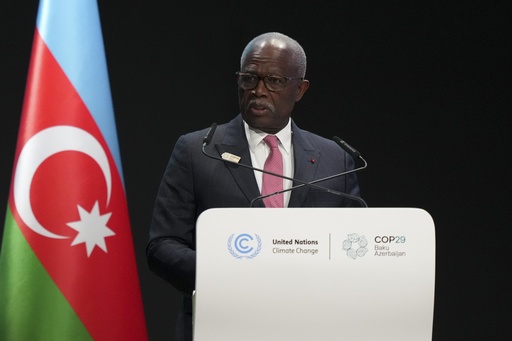
LIBREVILLE, Gabon — This Saturday, Gabon is set to conduct a referendum to decide whether to implement a new constitution. This comes more than a year following the military’s takeover, which ousted the country’s long-serving president in the oil-rich region of Central Africa.
Approximately 1 million citizens are anticipated to participate in the vote. The proposed constitution introduces significant reforms aimed at mitigating dynastic rule and ensuring a smooth transfer of power. For the changes to be enacted, the draft must secure over 50% approval from voters.
In 2023, soldiers deposed President Ali Bongo Ondimba, placing him under house arrest. They condemned his administration for negligent governance and corruption, citing concerns that his actions were leading Gabon toward instability. A week post-overthrow, the junta allowed Bongo to leave the country for medical treatment on humanitarian grounds.
The military subsequently appointed General Brice Clotaire Oligui Nguema, the head of the republican guard, as the president of a transitional committee tasked with guiding the nation. Notably, Oligui is related to Bongo, being his cousin.
Bongo had governed for two terms since assuming power in 2009, following the death of his father, who had held the presidency for 41 years. His administration faced substantial dissatisfaction, which culminated in a coup attempt in 2019 that did not succeed.
The proposed constitutional reforms stipulate a term limit of seven years, which can be renewed only once, contrasting with the existing setup that permits five-year terms without restrictions. Additionally, the new rules prohibit family members from succeeding a president and eliminate the position of prime minister.
As a former French colony and a member of OPEC, Gabon has considerable oil resources; however, wealth from these resources is largely held by a small minority. The World Bank reported that nearly 40% of Gabonese aged 15 to 24 were unemployed in 2020. The country’s oil exports reached $6 billion in 2022, as per the U.S. Energy Information Administration.
The polling stations are set to close at 6 p.m. on Saturday, but there is no legally mandated timeframe for when the results will be made public.
